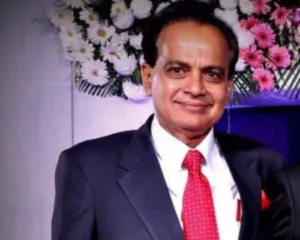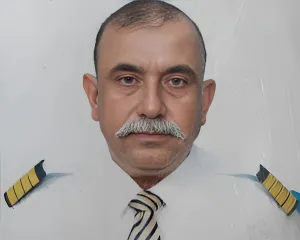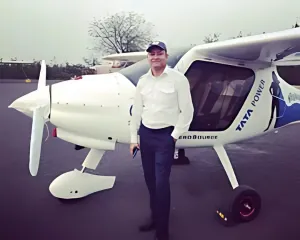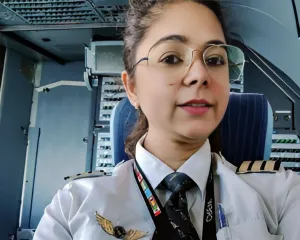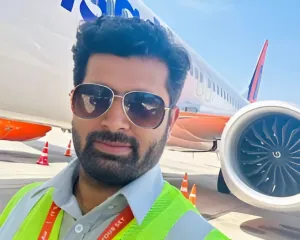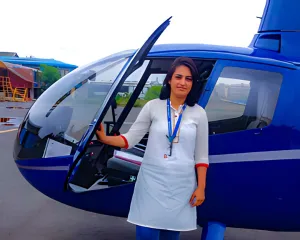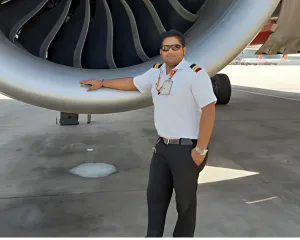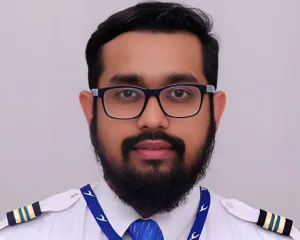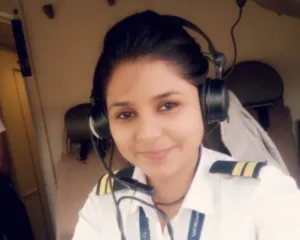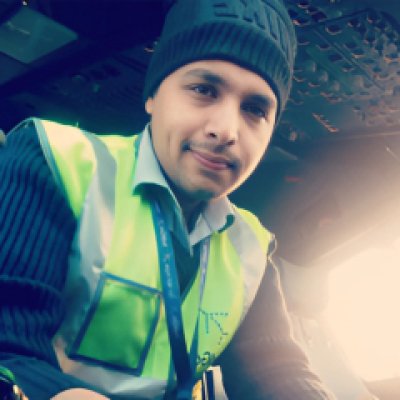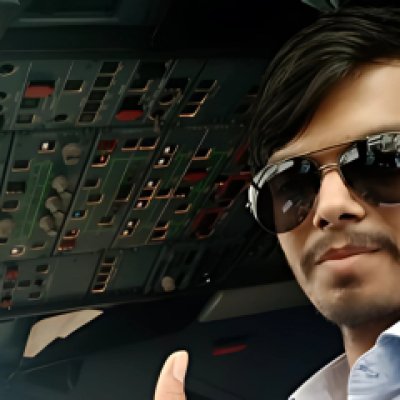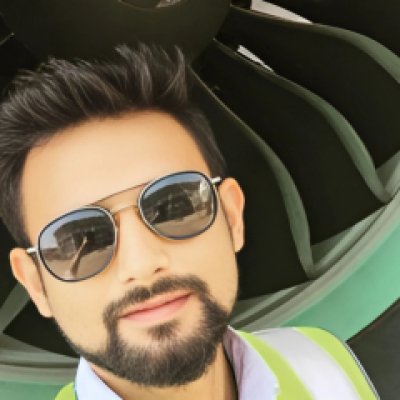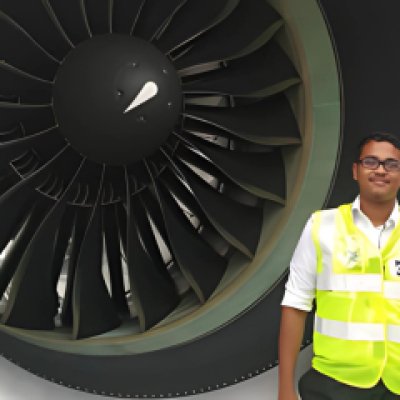BBA & BSc in Aviation in India
A Bachelor of Science (BSc) in Aviation is a 3-year undergraduate program that focuses on aviation science, aircraft maintenance, airport operations, and air traffic control. and The Bachelor of Business Administration, or BBA, is an academic distinction pursued by many high school graduates looking to broaden their career prospects and enhance their earning potential. Most BBA programs can be completed in 3 years after which some graduates join the workforce while others pursue even higher academic distinctions.

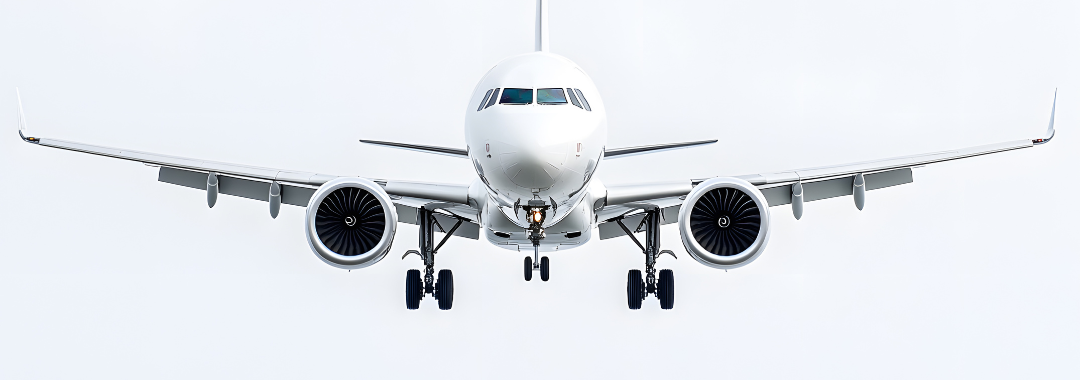

International Aviation Scholarship and Aptitude Test (IASAT) 2026
REGISTRATIONS STARTING FROM 01 OCTOBER 2025
Make Your Dream Come True. ENROLL NOW!!
Scholarship Exam For All The Students Pursuing Higher Education
What is BSc in Aviation?
A Bachelor of Science (BSc) in Aviation is a 3-year undergraduate program that focuses on aviation science, aircraft maintenance, airport operations, and air traffic control. The course combines theoretical knowledge with practical training to prepare students for careers in airlines, airports, and aviation management.
Key Features of BSc Aviation:
- Duration: 3 years (6 semesters)
- Eligibility: 10+2 with Physics, Chemistry, and Mathematics (PCM)
- Course Type: Full-time
- Career Scope: Pilot Training, Air Traffic Control, Airport Management, Aviation Safety
- Medical: Fit to study & participate in field visits/industry training.
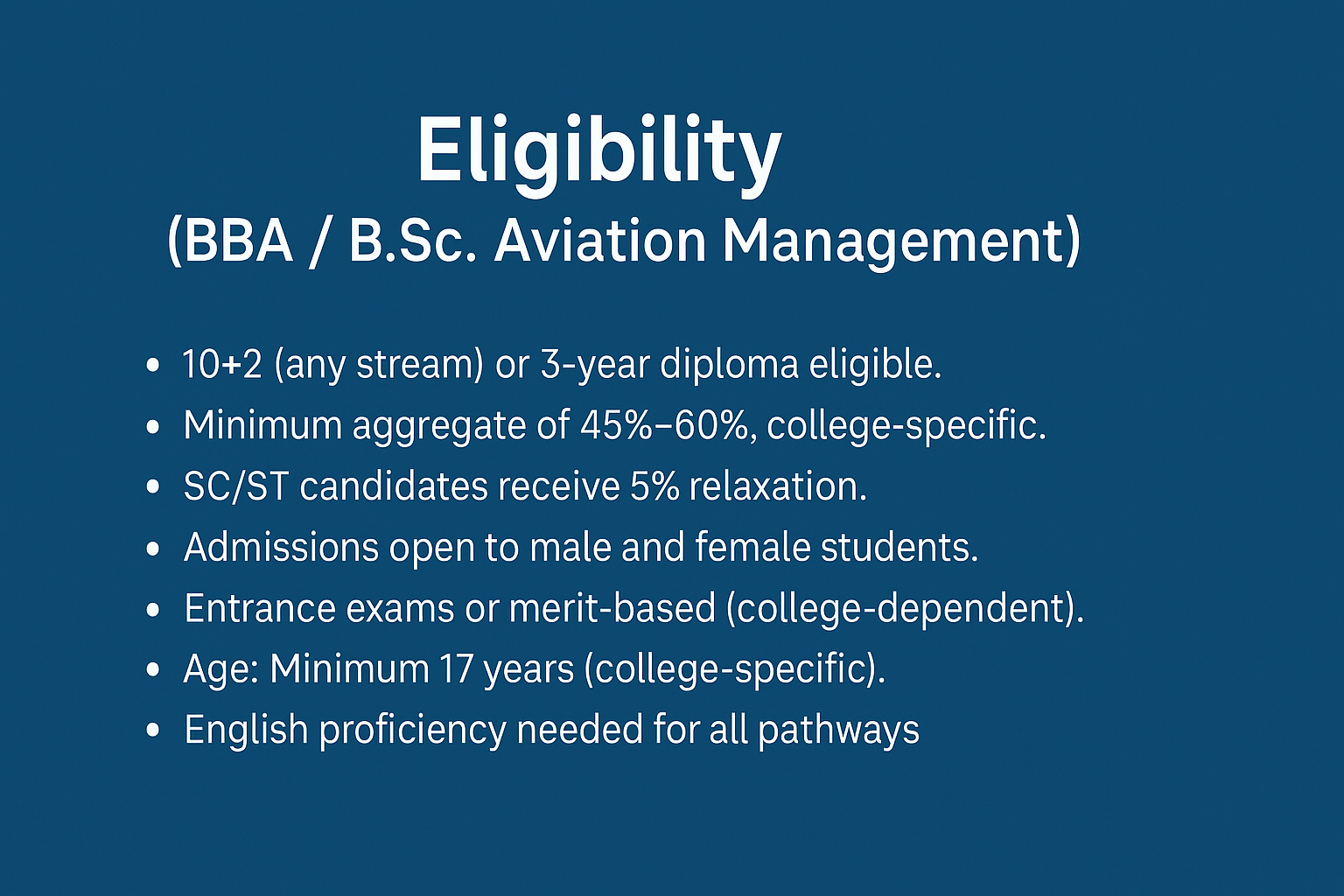
Growing Aviation Industry
India is the 3rd largest aviation market globally, with increasing air traffic and new airports being developed. This growth creates a high demand for aviation professionals.
Diverse Career Opportunities
Graduates can work in:
- Airlines: Pilot, Cabin Crew, Ground Staff
- Airports: Air Traffic Control, Airport Management
- Aviation Safety & Security
- Aircraft Maintenance & Engineering
Global Career Prospects
Aviation is a global industry, offering opportunities to work with international airlines and airports. Skills gained through a BSc in Aviation are transferable across countries.
BSc Aviation Syllabus & Subjects
The BSc Aviation syllabus covers aviation science, aircraft systems, airport operations, and management. Here’s a semester-wise breakdown:
Semester 1 & 2 (Foundation Subjects)
- Introduction to Aviation
- Physics & Aerodynamics
- Mathematics for Aviation
- Communication Skills
Semester 3 & 4 (Core Aviation Subjects)
- Aircraft Systems & Instruments
- Aviation Meteorology
- Air Traffic Control Basics
- Aviation Safety & Security
Semester 5 & 6 (Specialization & Internship)
- Airport Management
- Aviation Law & Regulations
- Internship (Airlines/Airports)
- Project Work
Key subjects covered may include:
- Fundamentals of Aviation
- Air Traffic Management
- Aviation Laws and Regulations
- Aircraft Maintenance and Engineering
- Airport Management and Ground Operations
- Aviation Safety and Security
- Flight Operations
- Meteorology and Navigation
In addition to theoretical knowledge, students are often given practical training, including internships and exposure to live aviation environments.

Why Pursue a BSc in Aviation in India?
The aviation industry in India is one of the fastest-growing sectors in the country. With the rise in passenger traffic, government investments in infrastructure, and the increasing number of domestic and international flights, the demand for trained professionals in aviation-related fields is expected to grow significantly.
Growing Aviation Sector in India
India is the third-largest aviation market in the world and is projected to become the largest by 2030. With more airlines launching operations and the government’s focus on improving airport infrastructure, there is a high demand for qualified professionals in the field of aviation.
Wide Range of Career Opportunities
A BSc in Aviation opens various career paths, including roles in airline management, air traffic control, airport operations, aviation safety, and aircraft maintenance. Graduates can work in public and private airlines, cargo companies, airports, aviation consultancies, and regulatory bodies.
Attractive Salary Packages
The aviation industry offers competitive salary packages for skilled professionals. With the growing demand for aviation experts, salaries are expected to rise, making this an attractive field for those looking for financial stability and career growth.
International Career Opportunities
India’s aviation industry is not only expanding domestically but also internationally. Graduates of BSc in Aviation have the potential to work with global aviation giants, as the skills and training are transferable across international borders.


Career Opportunities After BSc Aviation
After completing a BSc in Aviation, graduates can explore careers in:
- Commercial Pilot License (CPL)
Requires additional training from DGCA-approved institutes.
Salary: ₹8 LPA – ₹25 LPA (experienced pilots earn higher). - Air Traffic Controller (ATC)
Manages aircraft movement in airspace.
Salary: ₹6 LPA – ₹15 LPA. - Airport Manager
Oversees airport operations, security, and logistics.
Salary: ₹4 LPA – ₹12 LPA. - Cabin Crew & Ground Staff
Works with airlines in customer service roles.
Salary: ₹3 LPA – ₹8 LPA. - Aviation Safety Officer
Ensures compliance with safety regulations.
Salary: ₹5 LPA – ₹10 LPA.
Conclusion
A BSc in Aviation in India is an excellent choice for students passionate about the aviation industry. With high-paying jobs, global opportunities, and industry growth, this degree opens doors to exciting careers in airlines, airports, and aviation management.
If you’re looking for strong>top aviation colleges in India, ensure you check eligibility, fees, and placement records before applying. Start your journey towards a soaring career in aviation today!

BSc in Aeronautics in India
The field of aeronautics offers numerous career opportunities for students passionate about aircraft, flight dynamics, aerospace engineering, and technology. A BSc in Aeronautics is a comprehensive undergraduate program that provides students with the knowledge and skills needed to excel in the ever-evolving aerospace industry.
With India’s growing demand for skilled professionals in aviation and aerospace technology, pursuing a BSc in Aeronautics is a stepping stone towards a rewarding career. This section offers an in-depth guide on everything you need to know about pursuing a BSc in Aeronautics in India, including the course structure, career prospects, top colleges, and the future of the aerospace industry in India.


What is BSc in Aeronautics?
A BSc in Aeronautics is a specialized undergraduate degree program that focuses on the study of aircraft and flight systems. The program encompasses various technical subjects like aerodynamics, avionics, aircraft systems, and propulsion systems.
Students also gain a deeper understanding of the scientific principles behind flight, the design and operation of aircraft, as well as safety protocols in the aviation and aerospace sectors.
The course is designed to prepare students for technical and managerial roles in the aerospace industry, ensuring they are equipped with the necessary skills to manage and maintain aircraft, design aircraft systems, and develop innovative solutions to enhance aviation technology.
Course Structure and Duration
A BSc in Aeronautics typically spans three years, divided into six semesters. The program combines theoretical learning and practical exposure, allowing students to apply their knowledge in real-world scenarios. During the course, students learn core subjects, including:
- Aerodynamics: The study of the forces acting on an aircraft during flight and how air interacts with the wings, tail, and fuselage.
- Aircraft Systems: A comprehensive understanding of the various systems that make up an aircraft, such as propulsion, hydraulic systems, and avionics.
- Propulsion: Understanding the types of propulsion systems used in aviation, including jet engines and propellers.
- Avionics: The study of the electrical systems in an aircraft, including navigation, communication, and control systems.
- Flight Mechanics: Understanding the principles and dynamics of flight, including flight stability and control.
- Aircraft Materials and Structures: Learning about the materials used in the construction of aircraft and how to design them for maximum strength and efficiency.
- Aerospace Engineering:A deeper look into the design and development of aircraft and spacecraft.
- Aviation Safety and Regulations: Understanding the safety protocols, industry standards, and regulations that govern the aviation industry.
Along with theoretical courses, many institutes offer practical training, including internships with aviation companies, flight simulations, and laboratory work. These experiences help students gain hands-on exposure to the real-world challenges of aeronautics.
Why Pursue a BSc in Aeronautics in India?
India’s aviation and aerospace industries are growing at an exponential rate. As one of the fastest-growing aviation markets in the world, the country offers excellent career prospects for individuals with expertise in aeronautics. Here are some compelling reasons to pursue a BSc in Aeronautics in India:
Growing Demand for Aviation and Aerospace Professionals
With the expansion of both the aviation and aerospace sectors, India is facing an increasing demand for highly trained professionals in aeronautics. This includes engineers, technicians, pilots, air traffic controllers, and more. As airlines, aerospace companies, and research institutions continue to grow, the need for aeronautics graduates will only intensify.
Exciting Career Opportunities
A BSc in Aeronautics opens the door to a wide range of career options in the aviation and aerospace industries. Students can choose from a variety of roles, including aircraft design and manufacturing, aviation safety management, air traffic control, and aerospace research and development.
Cutting-Edge Technological Advancements
Aerospace technology is constantly evolving, with new innovations in areas such as drone technology, electric aircraft, and space exploration. By pursuing a BSc in Aeronautics, students can be a part of these exciting advancements, contributing to the future of flight and space exploration.
Lucrative Salaries
Aerospace professionals in India are often rewarded with attractive salary packages due to the technical expertise required in this field. As the demand for aeronautics professionals continues to rise, salaries in the sector are expected to remain competitive, making it a financially rewarding career choice.
Global Opportunities
A BSc in Aeronautics not only provides opportunities in India but also opens doors to international careers. With the aviation industry being global in nature, students can apply for jobs with international airlines, aerospace companies, or government agencies in other countries.
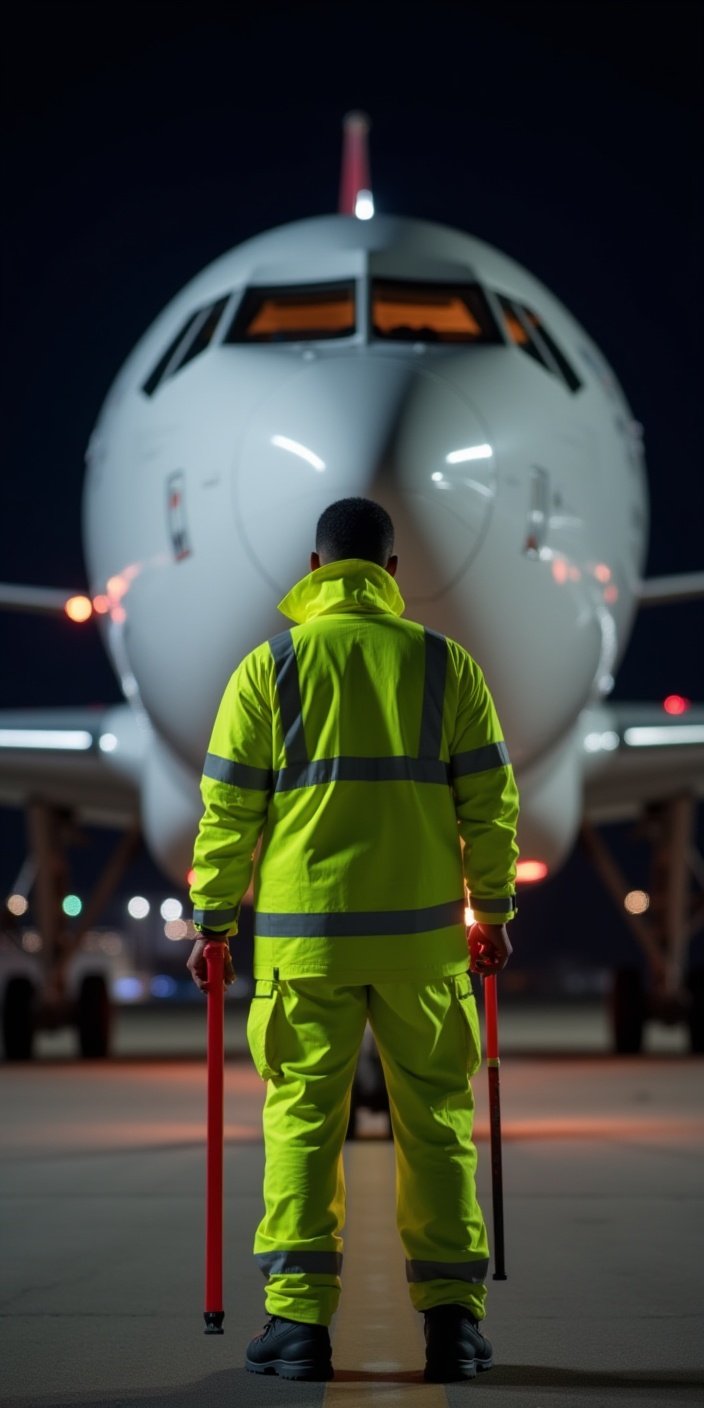
Career Opportunities After Completing BSc in Aeronautics
Graduates with a BSc in Aeronautics have numerous career opportunities across aviation, aerospace, and defence industries. Some popular career options include:
- Aircraft Design Engineer – Aircraft design engineers are responsible for designing and developing aircraft and their components, ensuring they meet performance, safety, and regulatory standards. These engineers work with teams to innovate and improve the overall design of aircraft.
- Aerospace Engineer – Aerospace engineers work in the field of both aviation and space exploration. They are involved in the design, testing, and maintenance of aircraft, spacecraft, and satellite systems. They work for private companies, government agencies, or research institutions.
- Avionics Engineer – Avionics engineers are responsible for the electrical systems of aircraft, including navigation, communication, and control systems. These engineers play a crucial role in ensuring the safe operation of aircraft through their work on avionics systems.
- Air Traffic Controller – Air traffic controllers are responsible for directing aircraft during takeoff, landing, and while in flight to ensure safety and avoid collisions. With a BSc in Aeronautics, graduates can work as air traffic controllers, ensuring the safe flow of air traffic in airports and across airspaces.
- Flight Test Engineer – Flight test engineers work closely with aircraft manufacturers and test pilots to ensure that newly developed aircraft are safe and functional. They are responsible for evaluating the performance of an aircraft during test flights and identifying any issues that need to be resolved before the aircraft is put into service.
- Aviation Safety Officer – Aviation safety officers are responsible for ensuring that aviation operations comply with safety regulations and industry standards. They develop and implement safety protocols and monitor the operations to ensure a safe working environment for both passengers and crew.
- Aerospace Consultant – Aerospace consultants provide expertise to companies and organizations in the aviation and aerospace industries. They may offer advice on everything from aircraft design and manufacturing to regulatory compliance and operational efficiency.
- R&D Specialist – Graduates can work in the R&D departments of aerospace companies, contributing to innovations in areas such as aircraft design, fuel efficiency, and aerospace technologies. Research specialists work to develop cutting-edge technologies that shape the future of aviation and space exploration.
Admission Process and Eligibility Criteria
To pursue a BSc in Aeronautics, candidates must meet certain eligibility criteria and follow an institute-specific admission process. Generally:
- Educational Qualification: Candidates must have completed their 10+2 (Class 12) examination with Physics, Chemistry, and Mathematics as core subjects.
- Minimum Marks: Most institutes require students to have a minimum marks.
What is a Bachelor of Business Administration (BBA)?
The Bachelor of Business Administration, or BBA, is an academic distinction pursued by many high school graduates looking to broaden their career prospects and enhance their earning potential. Most BBA programs can be completed in 3 years after which some graduates join the workforce while others pursue even higher academic distinctions.

What is a BBA in Aviation Management?
This rigorous degree program is intended for those with a strong aptitude gives participants a solid educational foundation in aviation studies, management and related considerations. Many Bachelor of Business Administration in Aviation programs focus on topics like airline and airport management and commerce and regulatory policies, while additional attention is critical for success within this field. It includes subjects like financial accounting, business communication, cost & management accounting, airline marketing management, Cargo Introductory course, airline & airport management, etc. The students pursuing this course have strong managerial skills in aviation management. The course also teaches them to have a strong sense of service to passengers, good communication, and interpersonal skills.
Many Bachelor of Business Administration in Aviation Management degree holders find that they earn far more after receiving the degree than they were able to prior to doing so. They are also typically hired before those without degrees and generally have an easier time finding gainful employment. BBA Aviation provides a strong managerial background especially in the field of aviation and the airline business. Through this course, the students can learn airport planning, passenger forecasting, airport security, fire safety, etc. This course will help them understand the business, recognize and solve the problems that may arise with the changing scenarios in the aviation industry.
Eligibility: Eligibility Passed 10+2 in any stream with a minimum of 50% aggregate from a recognized board.
Career Prospects
Graduates of the BBA – Aviation Management are equipped with the necessary knowledge and skills to be prepared for employment at entry level positions or pursue further study, in Aviation Management or any relevant field.
There is strong variation in the cost of one BBA in Aviation Management program to the next due to factors like geography and popularity, so prospective students. Those with aviation management bachelor’s degrees often go on to work in air traffic control or related capacities or as representatives or business associates of airlines or airports. Credit control manager, airport manager, program manager, assistant airport manager, airport operations manager, etc. Others go on to work as public relations or human resource representatives for airlines or airports or as flight trainers or instructors. Some graduates use the bachelor’s degree as a steppingstone toward an aviation management-related master’s degree.
Aviation management programs can help students prepare for business careers in the aviation field. Programs may offer courses in law, airport design, management, operations, aviation safety and flight mechanics. The programme aims to provide high quality business education with a focus on the aviation industry. The curriculum is carefully designed to integrate core business courses with specialized major courses that focus on topics related to airline and airport management. The graduates are also eligible to go for further studies like MBA. They can also choose to prepare for government jobs and get managerial jobs in government organizations. Those looking to establish a lifelong career within the field of global aviation should review the many related programs available worldwide through our database. Search for your program and contact directly to our Team Members of your choice by filling in the lead form.
